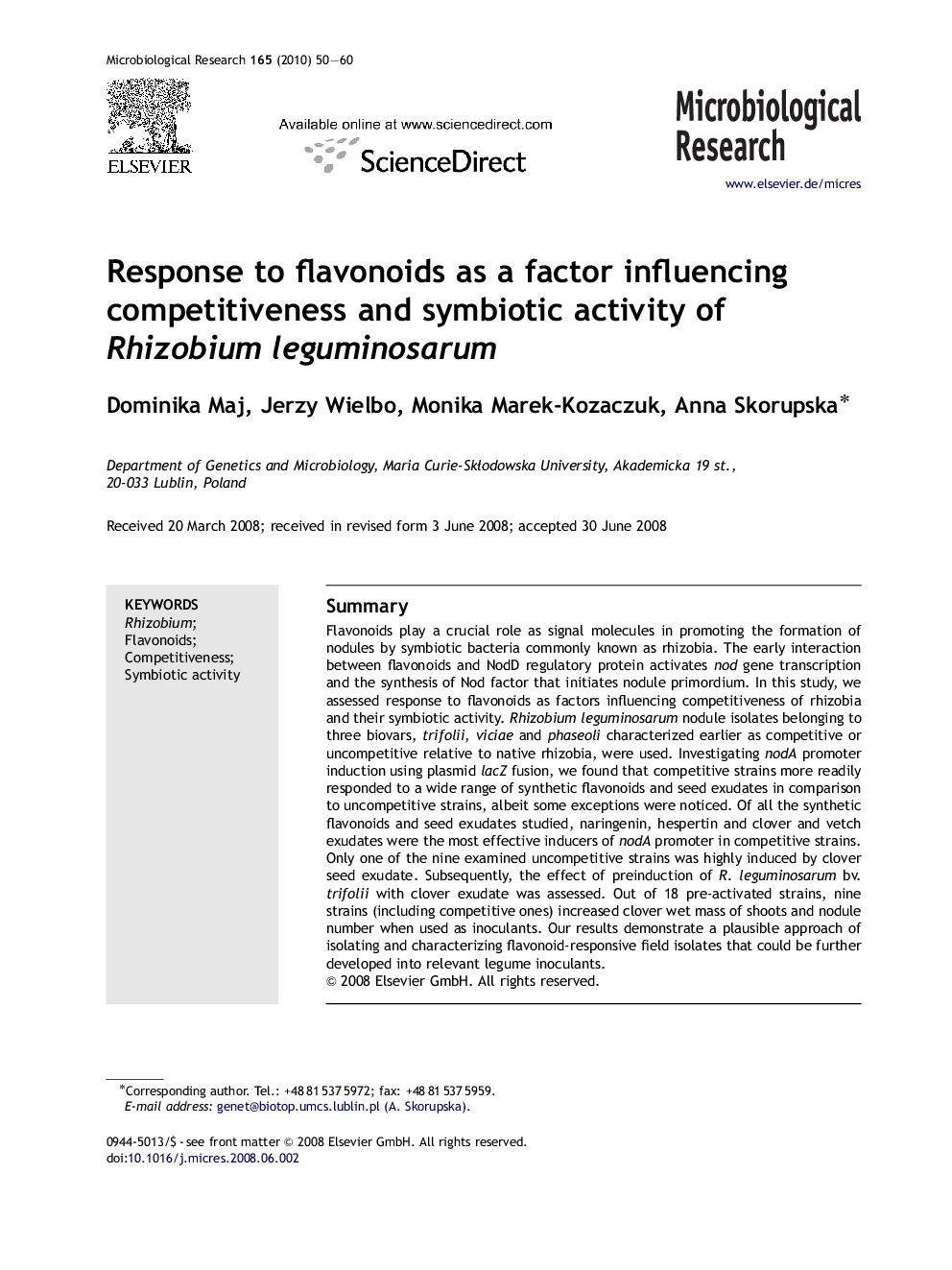| Article ID | Journal | Published Year | Pages | File Type |
|---|---|---|---|---|
| 2092733 | Microbiological Research | 2010 | 11 Pages |
SummaryFlavonoids play a crucial role as signal molecules in promoting the formation of nodules by symbiotic bacteria commonly known as rhizobia. The early interaction between flavonoids and NodD regulatory protein activates nod gene transcription and the synthesis of Nod factor that initiates nodule primordium. In this study, we assessed response to flavonoids as factors influencing competitiveness of rhizobia and their symbiotic activity. Rhizobium leguminosarum nodule isolates belonging to three biovars, trifolii, viciae and phaseoli characterized earlier as competitive or uncompetitive relative to native rhizobia, were used. Investigating nodA promoter induction using plasmid lacZ fusion, we found that competitive strains more readily responded to a wide range of synthetic flavonoids and seed exudates in comparison to uncompetitive strains, albeit some exceptions were noticed. Of all the synthetic flavonoids and seed exudates studied, naringenin, hespertin and clover and vetch exudates were the most effective inducers of nodA promoter in competitive strains. Only one of the nine examined uncompetitive strains was highly induced by clover seed exudate. Subsequently, the effect of preinduction of R. leguminosarum bv. trifolii with clover exudate was assessed. Out of 18 pre-activated strains, nine strains (including competitive ones) increased clover wet mass of shoots and nodule number when used as inoculants. Our results demonstrate a plausible approach of isolating and characterizing flavonoid-responsive field isolates that could be further developed into relevant legume inoculants.
